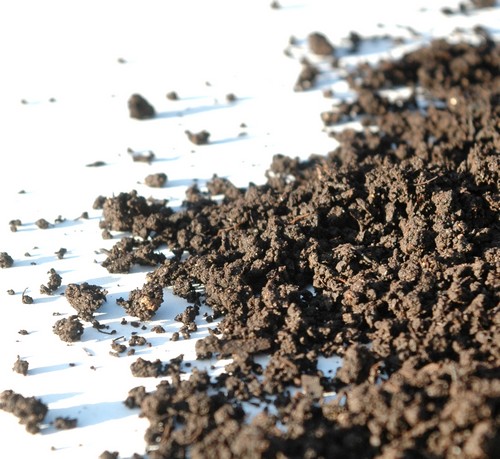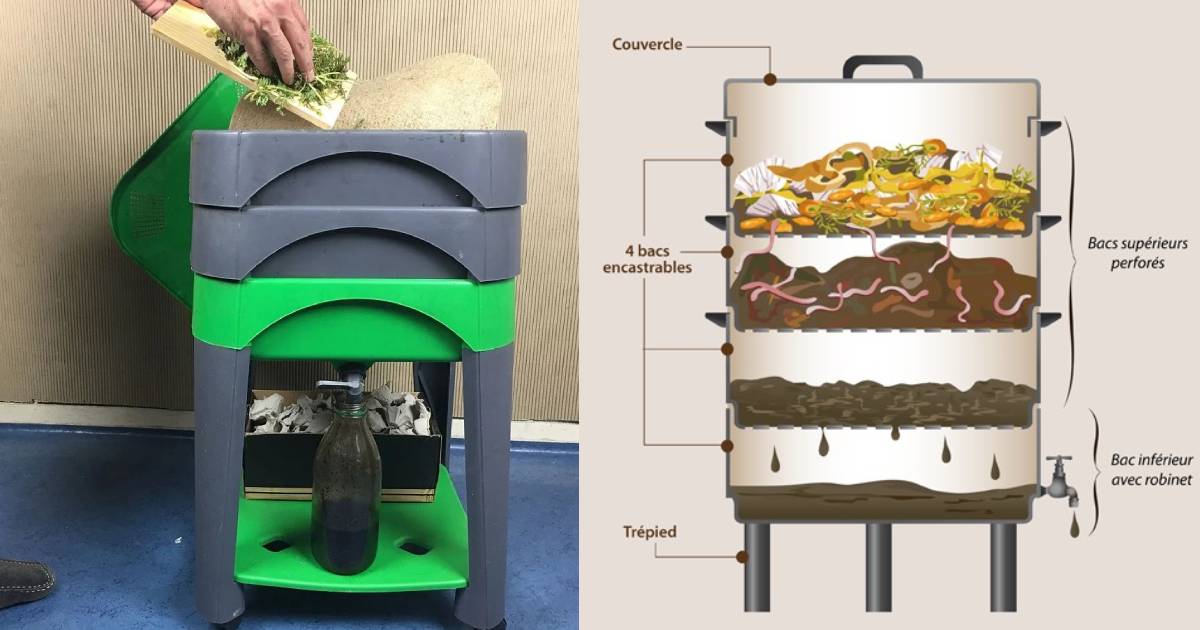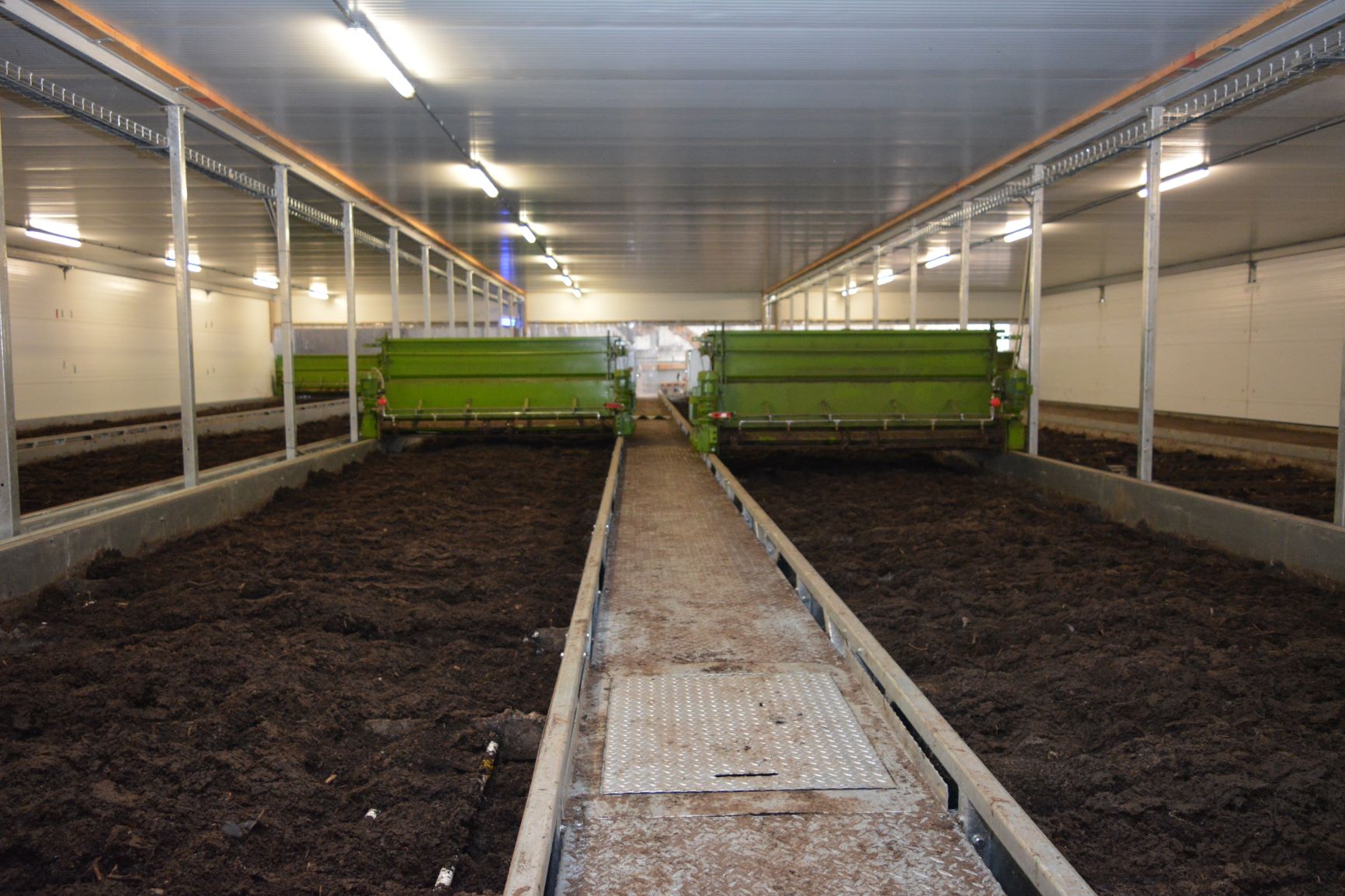- today
- label Fertilizer
- favorite 11 likes
- remove_red_eye 32337 views
- comment 0 comments
What is wormcast (synonym of vermicopost)?
Vermicompost is a composting process that uses earthworms (mainly Eisenia fetida and andrei species in our latitudes, also called "California red worm") to break down organic materials such as food scraps, dead leaves, paper, etc. The earthworms consume these organic materials and produce a nutrient rich excrement called "vermicompost". Earthworms consume these organic materials and produce a nutrient-rich excrement called "vermicompost". This process can be done on a small scale in a home composter or on a larger scale in a farm or commercial facility. Vermicomposting is often considered an environmentally friendly and sustainable alternative to traditional composting, as it can reduce waste sent to landfill while producing a natural, nutrient-rich fertilizer.
Vermicompost is a soil amendment, a product that must be mixed into the soil and will fertilize and structure it. The quality of a vermicompost depends on the "food", the vermicomposting technique and the density of worms.

What are the benefits of using vermicompost?
There are many benefits to using vermicompost, including:
Waste reduction: Vermicomposting reduces food waste and other organic waste, which can help reduce the amount of waste sent to the landfill.
Natural fertilization: Vermicompost is an excellent natural fertilizer, rich in nutrients such as nitrogen, phosphorus and potassium. It can improve soil quality and help plants grow faster and healthier.
Saves money: Vermicompost can be produced at home, which can help save money by reducing the cost of purchasing fertilizer and compost.
Sustainability: Vermicomposting is a sustainable and environmentally friendly process that reduces the amount of waste sent to landfill and produces a natural fertilizer without the use of chemicals or synthetic fertilizers.
Improved plant health: The nutrients in vermicompost can help improve plant health by strengthening root systems and improving disease resistance.
Reduced water consumption: Soils amended with vermicompost can retain water more efficiently, which can help reduce the amount of water needed to water plants.
In sum, the use of vermicompost is beneficial to both the environment and sustainable agriculture.
What are the different techniques for vermicomposting?
There are several different vermicomposting techniques, each adapted to different situations and needs. The main vermicomposting techniques are as follows:
Pile Composting: This is the simplest and most common method of vermicomposting. Organic materials are piled in a heap and worms are added. The pile is regularly turned to aerate the compost and promote decomposition. This method is particularly well suited to small gardens or small spaces.
Surface Vermicomposting: This method consists of spreading the organic material on a flat surface and letting it decompose. Worms are added and feed on the surface organic material. This method is particularly suited to outdoor gardens and rural areas.
Vermicomposting in a bin: This method involves using a bin specifically designed for vermicomposting. Worms are added to the bin, which is filled with organic material. The bins are stackable, allowing a large amount of waste to be composted in a small space. This method is particularly suited to urban gardens and homes with limited outdoor space.

Continuous Flow Vermicomposting: This method uses a drainage system to collect the liquid vermicompost produced by the worms. Organic material is added to the top of the system, and the vermicompost is continuously collected at the bottom. This method is particularly suited to indoor gardens and urban farms.
Continuous flow vermicomposting under controlled conditions: In order to have better control over the production process - especially temperature and humidity - some professionals have developed "continuous flow" production lines. In a controlled environment, the worm composters are regularly fed thin layers of food and the vermicompost is collected at the bottom of the lines. This continuous process ensures that all of the organic material is transformed into vermicompost. It is this technology that PUR VER has developed over the years that ensures the consistent high quality of PUR VER® vermicompost throughout the year.
Green Booster Liquid Vermicompost Extract is produced from PUR VER® vermicompost. We have developed an extraction process to transfer the unique properties of our vermicompost into liquid form. This liquid concentrate enriches your soil and plants.
Each technique has its advantages and disadvantages, so it is important to choose the method best suited to your needs and situation.
What wastes can and cannot be used for vermicomposting?
The wastes that can be used for vermicomposting are organic wastes, i.e. materials that have been living or are derived from life, and that are easily broken down by worms. Organic waste commonly used for vermicomposting includes:
Food scraps (fruits, vegetables, bread, etc.)
Garden waste (leaves, grass, etc.)
Tea bags and paper coffee filters
Untreated wood chips
Shredded newspaper
Crushed eggshells
It is important to note that some organic waste should be avoided for vermicomposting, including:
Leftover meat, fish or dairy products: these wastes can attract flies and rodents, and give off an unpleasant smell.
Fats and oils: these can prevent the decomposition of other organic materials and cause foul odours.
Waste from plants treated with pesticides or herbicides: these chemicals can kill worms and contaminate the compost.
In short, the organic waste to be composted should be non-toxic, not chemically treated and easily decomposed by the worms.
How do I use vermicompost in my garden?
Vermicompost is an excellent natural fertilizer for plants. Here's how to use it in the garden:
- Mix vermicompost with soil: Vermicompost can be mixed directly with garden soil to improve its structure and fertility. It can be incorporated into the soil before planting, or added around plants to stimulate their growth. Add vermicompost at a rate of 100 to 200 grams per square meter.
- Use vermicompost as a mulch: a thin layer of vermicompost can be spread on the soil around plants to protect them from weeds and encourage their growth.
- Make compost tea: Vermicompost can be used to make compost tea, also called "compost extract". To do this, place a small amount of vermicompost in a canvas bag or nylon sock and soak it in water for several hours. Compost tea can be sprayed on plants as a liquid fertilizer.
- Use vermicompost for houseplants: Vermicompost is also excellent for houseplants. Mix 100g of vermicompost into your substrate mix for every 10 liters of potting soil. You can use it as a potting mix for repotting, or as a liquid fertilizer for watering.
Vermicompost is a very effective and environmentally friendly soil amendment. It helps to improve soil quality, reduce waste and encourage more sustainable farming.






Comments (0)